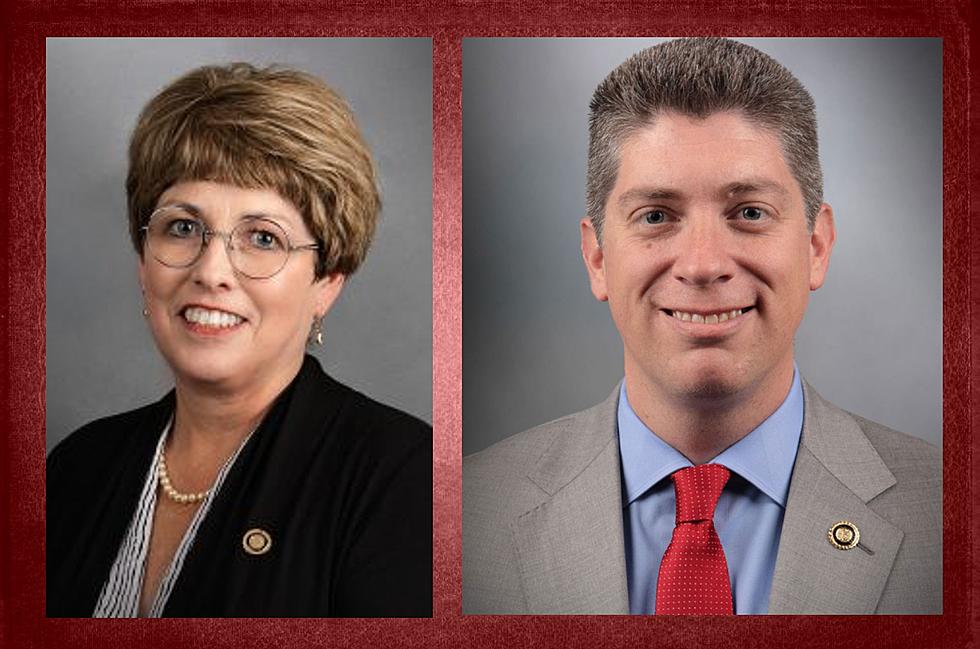
Schmitt Withdraws First Amendment Argument in Lawsuit
Missouri Attorney General Eric Schmitt on Tuesday withdrew a legal brief he had filed in a defamation lawsuit arguing the First Amendment allows him to withhold some public records concerning private citizens that were requested by the plaintiff’s attorney.
Schmidt originally made that argument last week in a lawsuit filed against Republican state Rep. Holly Rehder, of Scott City, who is accused of defamation by former Scott City Mayor Ron Cummins, The Kansas City Star reported.
On Tuesday, Schmitt said in a statement that the First Amendment didn’t apply to the Cummins’s lawsuit against Rehder.
“There are times in the course of civil cases where information is personal and sensitive and can be protected, particularly as it relates to concerns of health and safety of our citizens, such as cases involving witnesses or victims who may be put in harm’s way by releasing their personal information,” Schmitt said. “These are very limited instances. In the case of Cummins vs. Rehder, after further review, the assertion and objection filed should have not been raised in this instance and will therefore be withdrawn.
Cummins resigned as Scott City mayor in August 2017 after Rehder called for an investigation into allegations that he abused his position. He alleges in his lawsuit that Rehder and others made defamatory statements against him to the news media and continued to do so after law enforcement advised her that he had not broken any laws.
Cummins’ lawyer is seeking information about constituents who complained to Rehder’s office. Schmitt argued in the brief filed last week that turning over the information would violate those constituents’ right to free speech.
That contention is similar to one made by Gov. Mike Parson, who has invoked the First Amendment while withholding identifying information of private citizens who contact the governor’s office. Missouri Auditor Nicole Galloway in May asked Schmitt’s office to rule whether Parson illegally cited the First Amendment to withhold information from public records but Schmitt has not issued a ruling.
The governor’s office has argued that citizens would not contact elected officials if they believed information like email addresses and phone numbers could become public. Transparency advocates argue that withholding the information violates the state’s open records laws and could shield lobbyists and other special interests from public scrutiny.
In his statement, Schmitt contended there are “distinct differences” between procedures in a civil lawsuit and what can be redacted under the First Amendment under the Sunshine Law.
“In the separate issue regarding the Sunshine Law and the First Amendment, we have been and will continue to be in the process of carefully and deliberately reviewing the law to evaluate whether the blanket use of the First Amendment is proper in redacting personal information,” he wrote.
Before he withdrew the brief, transparency advocates criticized Schmitt’s argument, which they said is the same as Parson’s.
Jean Maneke, attorney for the Missouri Press Association, noted that the attorney general’s office cited no case law to support his argument in the lawsuit because no such case law exists.
“There is no legal argument under the Sunshine Law that the First Amendment allows for the closure of records by a government official,” Maneke said.
And Daxton Stewart, a journalism professor specializing in media law at Texas Christian University, said it is “misguided” to claim the First Amendment allows the withholding of information that the Sunshine Law otherwise requires to be released.
“The First Amendment protects a citizen from being punished by the government for their speech, but it doesn’t protect said speech or information about the citizen from disclosure,” Stewart said. “There’s not a court opinion I’ve ever seen that could be cited for that point.”
More From AM 1050 KSIS









